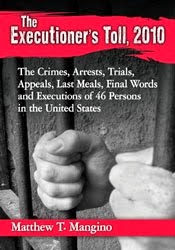Matthew T. Mangino
The Legal Intelligencer
July 11, 2019
Michael Hicks walked into an Allentown convenience store at
3 a.m. on a summer morning in 2014. He had a handgun in his waistband and a
license to carry a concealed weapon. That didn’t prevent the police from
stopping Hicks’ vehicle before he left the parking lot.
Things got worse for Hicks. Once confronted by the police
the officer smelled alcohol and found marijuana in his pocket.
How did Hicks, lawfully carrying a firearm, end up arrested
for DUI and possession of marijuana?
The police relied on a 50-year-old landmark U.S. Supreme
Court decision and a 1991 ruling from the Pennsylvania Superior Court.
Prior to Terry v. Ohio, 392 U.S. 1 (1968) the concept
of an investigatory stop was pretty straightforward. A police officer could act
on a hunch and attempt to voluntarily engage an individual. However, once that
encounter became involuntary the suspect was considered seized and the police
needed probable cause to detain the suspect.
That all changed after Terry. The Supreme Court created
a degree of suspicion somewhere between a hunch and probable cause—now known as
reasonable suspicion. The Supreme Court authorized police officers lacking
probable cause for an arrest to conduct a frisk for weapons if the officer
believed the individual was dangerous.
On Halloween in 1963, a veteran Cleveland detective saw
two men standing on a downtown street acting in a way that seemed suspicious to
the detective. The detective observed the two men, one of whom was John
Terry, take turns walking back and forth, in front of a store window. After
each trip the two men would talk. The detective recalled that the men repeated
this ritual at least a half dozen times. A third man came along as the two men
spoke.
The detective approached the three, suspecting they were
planning to rob the store. He identified himself as a police officer, and asked
their names. Unsatisfied with the responses, the detective spun Terry around,
patted down the outside of his clothing, and felt a pistol in his overcoat
pocket.
Terry and another man were subsequently charged with
carrying a concealed weapon and both filed a motion to suppress the guns as the
fruits of an unlawful search.
The Supreme Court found that the detective “seized” Terry
and subjected him to a “search” within the meaning of the Fourth Amendment. But
the Fourth Amendment protects against unreasonable searches and
seizures, so the court next had to determine whether Terry’s seizure and search
were “reasonable.”
The events the detective witnessed made it reasonable for
him to believe that either Terry or his companions were armed. “The record
evidences the tempered act of a policeman who in the course of an investigation
had to make a quick decision as to how to protect himself and others from
possible danger, and took limited steps to do so.”
The court found that the search was reasonable, and
concluded that the gun found on Terry was properly admitted into evidence.
Over time the reasonable suspicion standard from Terry evolved
from an investigatory tool to a crime-fighting tool through the advent of “stop
and frisk.”
In the early 1980s, if a police officer had reasonable
suspicion of a possible crime, she had the authority to stop an individual and
ask questions. Reasonable suspicion could be established by a neighborhood’s
crime rate or even the time of day or night. For her safety, and the safety of
others, the officer could pat-down the individual—if a gun was found the
inquiry could continue or an arrest, based on probable cause, could ensue.
If, based on the subject’s answers, the suspicion level did
not escalate to probable cause for an arrest the person would be released
immediately.
Stop and frisk became popular in New York City. Opponents of
stop and frisk argued that the police stops were discriminatory because they
did not reflect the city’s overall census numbers.
Supporters argued there were 2,245 murders in New York
City in 1990. By 2012, the number had dropped to 414, the lowest since
police began keeping records.
Finally, in 2012, U.S. District Judge Shira Scheindlin put a
stop to it. She called the city’s stop-and-frisk tactics “indirect racial
profiling.” The police used the tactic more than 4.4 million times between 2004
and 2012. The vast majority of the stops were of African Americans, 52%, and
Hispanics, 31%. And 88% of stops resulted in no further law enforcement action.
Stop and frisk is not unconstitutional. There is no question
that Pennsylvania law provides that an individual may be stopped, briefly
detained and frisked for investigatory purposes if the police observe unusual
and suspicious conduct on the part of the individual seized.
That brings us closer to Hicks’ dilemma.
In 1989, Charles Robinson Sr., was observed by a Pittsburgh
police officer bending over into a van with a gun sticking out of the back of
his pants.
Because of the presence of children in the area, the officer
decided to confer with her partner. The officers returned and stopped
Robinson’s van.
After Robinson stepped out of the van, the officer informed
him that she had seen a gun in the back of his pants. She performed a quick pat
down of Robinson and discovered a holster inside the back of his shorts.
The officer then looked into the van and saw a gun on the
floor beside the driver’s side seat with deep scratches through the serial
number.
In Commonwealth v. Robinson, 600 A.2d 957 (1991) the
Pennsylvania Superior Court found that possession of a concealed firearm by an
individual in public is sufficient to create a reasonable suspicion that the
individual may be dangerous. The court found that the observation of a weapon
in and of itself was enough to trigger reasonable suspicion—and permit a police
officer to temporarily detain that individual.
In Commonwealth v. Hicks, No. 56 MAP 2017, decided
May 31, the Pennsylvania Supreme Court overturned Robinson, a 28-year-old
precedent.
Hicks was armed and had a license to carry a concealed
weapon. Pennsylvania Supreme Court Justice David Wecht writing for the majority
contends, “A police officer in the field naturally relies upon his or her
common sense when assessing criminal activity. When many people are licensed to
do something, and violate no law by doing that thing, common sense dictates
that the police officer cannot assume that any given person doing it is
breaking the law. Absent some other circumstances giving rise to a suspicion of
criminality, a seizure upon that basis alone is unreasonable.”
In overturning Robinson the Pennsylvania Supreme
Court said evidence from Hicks’ detention should have been
suppressed. Wecht wrote, Robinson “contravenes the requirements
of the Terry doctrine and thus subverts the fundamental protections
of the Fourth Amendment.” Wecht concludes, “The Superior Court patently
has erred in concluding that the ‘possession of a concealed firearm by an
individual in public is sufficient to create a reasonable suspicion that the
individual may be dangerous.’”
Some people are barred from gun ownership, and a license is
required for a concealed firearm, the court said. But “there is no way to
ascertain an individual’s licensing status, or status as a prohibited person,
merely by his outward appearance.”
Matthew T. Mangino is of counsel with Luxenberg,
Garbett, Kelly & George/ His book “The Executioner’s Toll, 2010″ was
released by McFarland Publishing. You can reach him at www.mattmangino.com and follow him
on Twitter @MatthewTMangino.
To visit the column CLICK HERE







